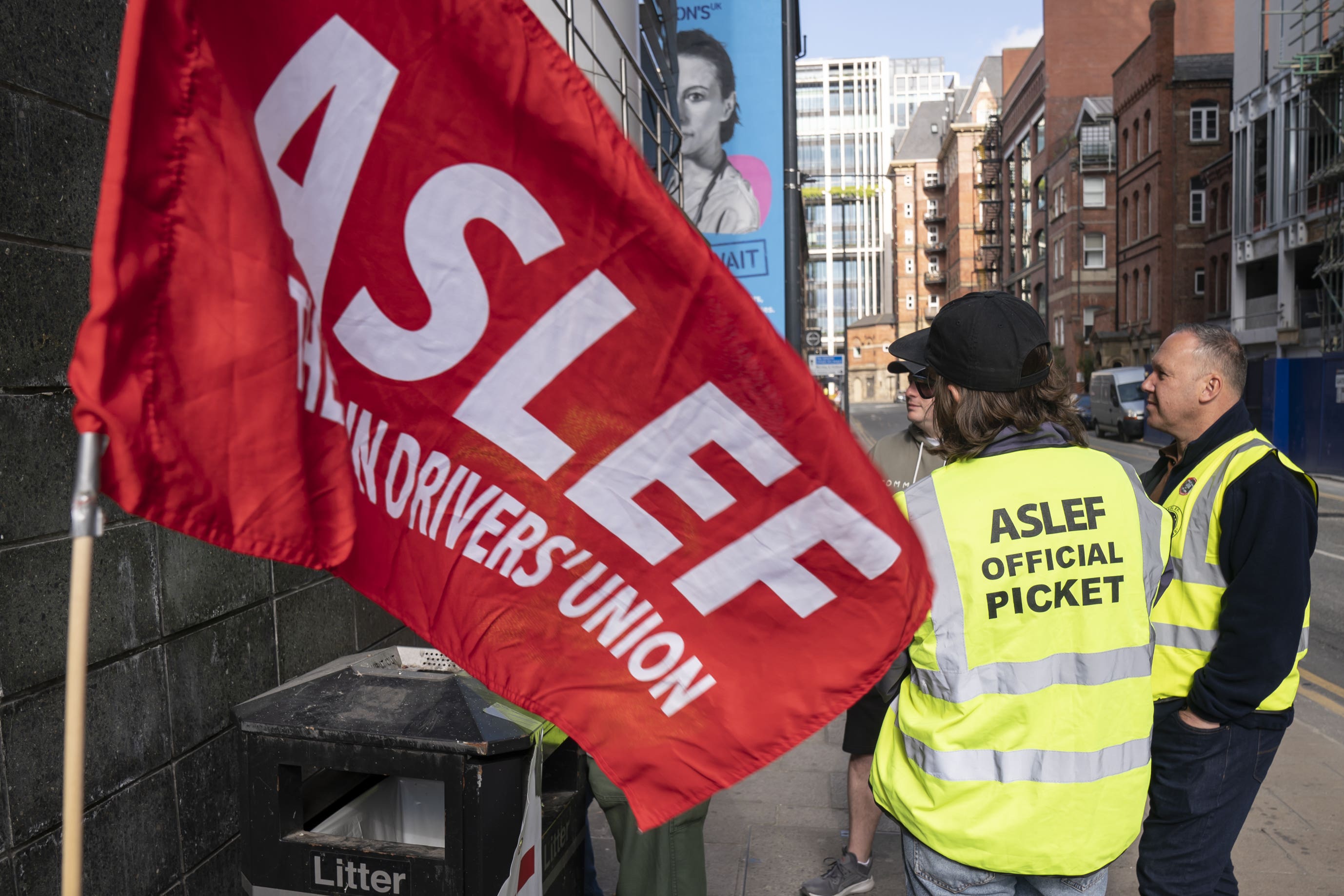Drivers’ strike set to cripple rail services across the country
The 24-hour walkout by members of Aslef will severely affect timetables.

Rail passengers face fresh travel chaos on Friday because of another strike by drivers in the long-running dispute over pay, which will cripple services across the country.
The 24-hour walkout by members of Aslef will severely affect timetables, with trains starting later and finishing earlier than usual, with some areas having no trains all day.
The dispute started over a year ago and remains deadlocked, with no talks planned and no sign of a breakthrough.
Drivers will also ban overtime on Saturday, coinciding with a strike by the Rail, Maritime and Transport union in its dispute over pay, jobs and conditions.
Both unions blame the government for blocking any chance of a deal by refusing to allow train operators to make an offer they can recommend to their members.
Aslef said Friday’s strike will force companies to cancel services across the country and the ban on overtime will “seriously disrupt” the network as the union maintains that none of the train companies employs enough drivers to provide a proper service without drivers working on their days off.
Aslef general secretary Mick Whelan said: “The Government appears happy to let passengers, and businesses, suffer in the mistaken belief that they can bully us into submission.
“They don’t care about passengers, or Britain’s railway, but they will not break us.
“Train drivers at these companies have not had a pay rise for four years, since 2019, while inflation has rocketed, We haven’t heard a word from the employers, we haven’t had a meeting, a phone call, a text message, or an email, since Wednesday April 26, and we haven’t had any contact with the Government since Friday January 6.
“This shows how the contempt in which the companies, and the Government, hold passengers and staff and public transport in Britain.”
A spokesperson for the Rail Delivery Group said: “Further strike action by the Aslef leadership is unnecessary and will cause more disruption to passengers looking to enjoy the end of the summer holidays.
“The union leadership has its head in the sand and refuses to put our fair and reasonable offer to their members.
“The offer would increase the average driver base salary for a 4-day week without overtime from £60,000 to nearly £65,000 by the end of 2023.
“We want to give our staff a pay increase, but it has always been linked to implementing necessary, sensible reforms that would enhance services for our customers.
“We urge the Aslef leadership to acknowledge the substantial financial challenges facing the rail industry and work with us to achieve a more dependable and robust railway system for the future.”
A Department for Transport spokesperson said: “After taxpayers supported rail workers throughout the pandemic, it’s frustrating to see both Aslef and RMT coordinate their strikes with the aim of causing as much disruption as possible on the last weekend of the summer holidays.
“There remains fair and reasonable offers on the table for both unions, one which would bring the average train driver’s salaries up to £65,000 and one which RMT members working for Network Rail accepted months ago.
“Continued industrial action is disappointing and delays the reforms that would ultimately benefit passengers, rail workers and taxpayers.”
South Western Railway advised passengers to only travel if “absolutely necessary” on Friday, warning that most of its network will be closed.
There will be an “extremely limited” service on a small number of lines, with trains only run between 7am and 7pm.
The same advice was given for Saturday because of the RMT strike and Aslef overtime ban.
Friday’s strike coincides with the final day of consultation on controversial plans to close most railway ticket offices, which has sparked hundreds of thousands of responses from the public.
A protest was held opposite Downing Street on Thursday evening.
Bookmark popover
Removed from bookmarks